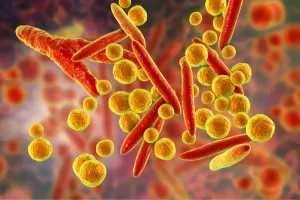Mycoplasma Genitalium- a common STI that many people don’t know about
What is Mycoplasma Genitalium?
Most people have heard of STIs such as Chlamydia, Gonorrhoea and Genital Herpes, but there is much less awareness about Mycoplasma Genitalium. However, we now know it’s quite a common infection, and doctors are starting to include it more frequently in STI checks. It is a sexually transmitted bacterial infection that can infect the urethra, vagina, cervix and anus. It’s especially important to be aware of it if you’ve got symptoms suggestive of an STI but have tested negative for Chlamydia and Gonorrhoea- in this situation it may be worth discussing a Mycoplasma test with your doctor.
How do you get Mycoplasma Genitalium?
It is passed on by having unprotected vaginal or anal sex.
What are the symptoms of Mycoplasma Genitalium?
Women may get symptoms similar to those experienced in Chlamydia:
- burning or stinging when passing urine
- pelvic pain
- a change in vaginal discharge
- unexpected vaginal bleeding
- pain during sex
It can also lead to serious pelvic infection- Pelvic Inflammatory Disease or “PID” for short. PID may presents with some or all of the following symptoms: fever, general unwellness, pelvic pain, vaginal discharge and pain during sex. In the longer term, there may be an increased risk of infertility, ectopic pregnancy and premature labour in women who have Mycoplasma, particularly if not treated.
It’s important to note that most women will have no symptoms at all, though the infection could still cause harm over time, so diagnosis is important.
Men may experience
- burning or stinging when passing urine
- discharge from the penis
- pain in the testes
Or, as in women, it may be a silent infection, with no obvious symptoms.
What is the test for Mycoplasma Genitalium?
Your doctor or sexual health clinic can test for it by taking a swab from the vagina, cervix, anus or urethra. Or a urine test may be performed. You’ll need to speak to a doctor to organise a pathology referral (you can request an online appointment to organise an STI test here).
How do you treat Mycoplasma Genitalium?
It’s treated with oral antibiotics- sometimes two antibiotics are taken at the same time to clear the infection. Unfortunately it can be resistant to antibiotics, so it’s important to get retested afterwards.
When can I have sex again and should I be tested after treatment?
It’s advisable to either avoid sex or carefully use condoms until you and your sexual partner(s) have been successfully treated. It’s also recommended to have another test one month following treatment to make sure it’s gone.
Should I tell my sexual partner(s) I’ve got Mycoplasma Genitalium?
Yes, you should inform your recent sexual contacts- and if this is difficult for you, an online service such as www.letthemknow.org.au can help you do so anonymously.
If you are concerned about STIs, speak to your GP or sexual health clinic.
Getting a Mental Health Care Plan in Australia: Your Guide
Getting a Mental Health Care Plan in Australia: Your Guide Mental health matters—and if you’re feeling overwhelmed, anxious, or down, a mental health care plan can help. But what is it, and how do [...]
UTI Symptoms and Treatment: What You Need to Know
UTI Symptoms and Treatment: What You Need to Know Urinary Tract Infections (UTIs) are common, uncomfortable, and often disruptive. But what exactly are the signs to watch for, and how can you get relief [...]
Free Mental Health Care Plan Online | Bulk-Billed by Qoctor
Free Mental Health Care Plan Online | Bulk-Billed by Qoctor Discover how to get a free, bulk-billed Mental Health Care Plan (MHCP) in Australia through Qoctor's telehealth service. Accessing [...]






